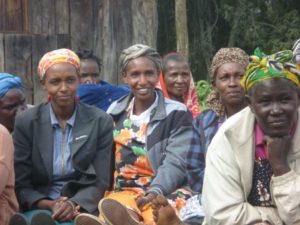By: Jordan Broadbent
Impunity Watch Staff Writer
NAIROBI, Kenya — On July 4, 2019, the Kenyan government and the Ogiek people submitted arguments to the African Court on Human and Peoples’ Rights for the compensation paid to the Ogiek people for violations of their rights and interference with their land.

On May 26, 2017, the African Court on Human and Peoples’ Rights ordered the Kenyan Government to return ownership of the Mau Forest lands back to the Ogiek people. The Ogiek are an indigenous tribe that have inhabited roughly 500 square miles of the Mau Forest in Kenya for centuries. The Ogiek people consider the land their ancestral ground, and have battled for centuries with colonizers, and now the Kenyan government, to maintain control of their homeland.
In recent years, the Kenyan government has attempted to evict the Ogiek people and remove them from their land. Under the guise of environmental protection, the Forest Act brought the control, use, and regulation of forest and forest areas under the control of the central government. The Kenyan government has used a two-pronged approach in order to remove the Ogiek people from this land. Using the Forest Act as support, the government first claimed that the Ogiek actually moved from the land, constituting a forfeiture of their land, ancestral or not. The second argument laid in an environmental issue, that the area is a water catchment zone and the Act gives the government power to take control of the land to protect the water catchments. The Kenyan government issued a 30-day eviction notice and allowed logging companies into the Mau Forest.
The Ogiek people brought the Kenyan government before the African Court on Human and Peoples’ Rights after a 15-year fight through the Kenyan Courts with the concern that the government’s actions endangered their community and culture. The Ogiek advocated for the Court to halt the eviction, recognize their legal rights to the land, and order the government to compensate the Ogiek people. The Provisional order declared the Kenyan Government to immediately reinstate all land transaction restrictions in the Mau Forest and report back to the Court in 15 days. On May 26, 2017 the Court ruled that the Kenyan government violated 7 sections of the African Charter on Human and Peoples’ Right and that the land was ancestral and belonged to the Ogiek, giving the indigenous people a historic win.
The victory signifies an important case for indigenous people in Africa. The Court overturned a government’s actions and ordered compensation to be paid to a group of the 20,000 individuals that make up the Ogiek. Ogiek were at risk of becoming “conservation refugees,” a term used for indigenous people who are forced off their land via conservation methods. This case marks a turning point to fight for the rights of indigenous groups to remain on their land.
In Kenya, the wait remains for the government to take tangible steps in restoring the Ogiek to their land.
For further information, please see:
African Court – African Court of Human and Peoples’ Rights Order 006/2012 – 4 July 2019
Minority Rights Group International – Two Years on, Kenya has yet to implement judgement in Ogiek case – 5 June 2019
Ogiek.org – Ogiek People – 2004
